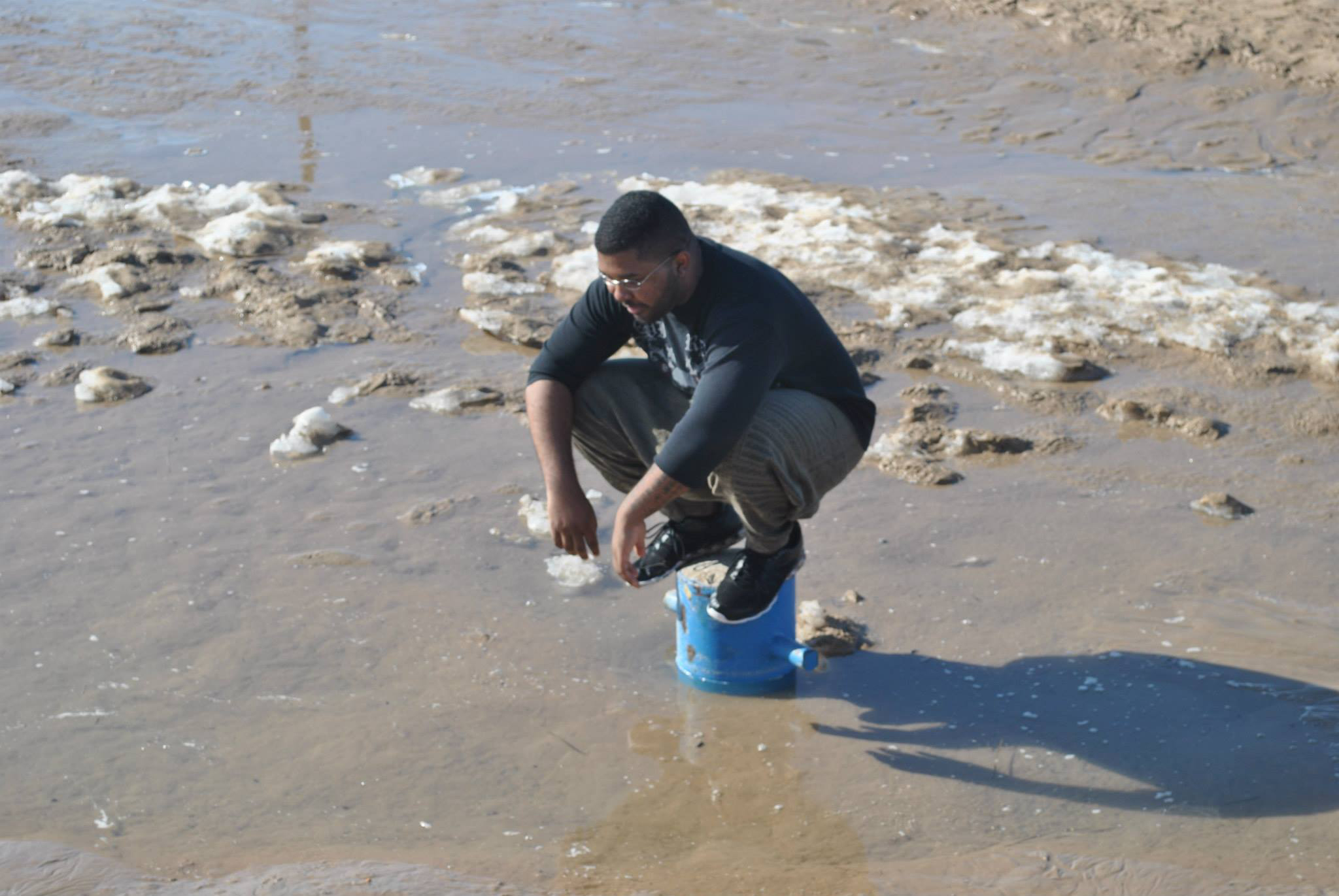Lamont Montrell Arrington took home this year’s first place award in the adult category of the Kent County Dyer-Ives Poetry Competition for his poem “Niggas in Paradise.” The piece is a reflection on the “harsh realities” of the African American experience.
Since he was a young boy, Arrington said he recognized the challenges people have in communicating with one another and his writing has always been a way to try and bridge those gaps and increase understanding between people.
The annual Dyer-Ives Poetry Competition has been held each year since 1968. The competition is open to poets ages 5 through adult who reside in Kent County. Submissions are accepted every February and winners are selected in the spring.
Winners selected in three age categories have their poems published in “Voices,” receive a cash award, and participate in a reading during the Festival of the Arts in June. Author, community organizer, and cultural advocate Azizi Jasper served as this year’s competition judge.
GR|MAG spoke with Arrington about his winning poem and how he got started writing poetry.
GR|MAG: Hi, Lamont, tell me a little bit about yourself and your background?
LA: I was born in Grand Rapids. I grew up on the outskirts of the downtown area, my family moved at least nine times before I graduated Creston High School. I joined the military after high school and then came home to attend college at Grand Valley State University.
GR|MAG: When did you first start writing poetry?
LA: I started writing poetry in the fourth grade after spending a summer writing short stories. Palmer Elementary School had great teachers that nourished my interest in writing and encouraged me to always write and read on my own, so I kept doing it because I enjoyed it.
GR|MAG: What inspired you to write?
LA: When I was in kindergarten I could not write my first name. It took me a long time to finally master, but through my efforts, I gained an appreciation for writing and the difficulties of communicating. Appreciation for the difficulty of life is what inspires me to write every day.
GR|MAG: How has your work evolved over the years?
LA: I wrote mostly letters and personal stories before I began college, but during college, I learned about craft and how to construct a message more intentionally. This helped me immensely as I found ways to bridge gaps in a reader’s understanding using imagery and concise exposition.
After college, I have worked to find ways to expand on the ways we understand each other’s ramblings so that everyone’s story can be heard and understood.
GR|MAG: Are there poets that you have been influenced by?
LA: My influences are more narrative than poetic. Writers such as Octavia Butler and Maggie Nelson find ways to bridge gaps in a reader’s understanding of their content by using magical realism to show reality plainly.
William Blake, Jean Toomer, and John Milton are my favorite poets because I enjoy their conversations about life and the grand sense of magical realism that comes through their work.
GR|MAG: Are you involved in the Grand Rapids literary or poetry scene?
LA: I have been to one poetry open mic night at Bridge Street Poetry, but sadly that has been all of my involvement. Most of my time has been spent working on my own content or helping other individuals with explorations of their own work.
GR|MAG: How did you hear about the Dyer-Ives competition and what made you decide to submit your piece?
LA: School. My professors at Grand Valley encouraged me to submit last year as an undergraduate student, but I did not feel ready to share poetry. This year, as a full-fledged adult, I gave it a shot and had some great results.
GR|MAG: Tell me a little about your winning poem?
LA: I wrote this poem for my girlfriend Jasmyn because of our conversations about her heritage/culture. As a mixed-race person in this world, she became disconnected from the harsh realities of the African American experience. It was my hope that through writing this poem she would be able to understand more clearly how life is and has been difficult for African Americans for a very long time.
Our culture is not spoken about so plainly and taken seriously, but it’s a fact that even if no one else will acknowledge our truths, we must in order to grow and create change in our lives.
GR|MAG: I read that you’ll be reading it this weekend at Festival for the Arts. When and where can people check that out?
LA: The Reading will be held on June 2 at the Grand Rapids Public Library’s downtown branch, at 111 Library St NE, starting at 1 p.m.
GR|MAG: Why do you think poetry is important?
LA: Poetry is important because not everyone can speak the same language. Some of us speak in smiles, and some of us speak in angst. Either way, we are all speaking, and it’s important for everyone to be able to join the greater conversation that is the human experience that we share.
GR|MAG: Is there anything else you think would be important to include?
LA: I would urge everyone to read more and share more in their communities and with their neighbors. The more we are connected, the less we are in the dark about the problems that minority cultures and demographics might face. Thank you for appreciating my work, I hope it helps you understand someone else a little bit more.








Facebook Comments